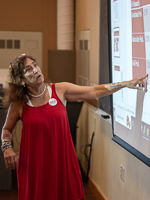 Academic Freedom Academic Freedom
Advancing and protecting academic freedom is the AAUP's core mission. For more than a century, we have been developing standards for sound academic practice and working for the acceptance of these standards by the higher education community.
As our foundational policy statement states, "institutions of higher education are conducted for the common good and not to further the interest of either the individual teacher or the institution as a whole. The common good depends upon the free search for truth and its free exposition." This statement has been endorsed by more than 250 national scholarly and educational associations. Learn more here.
|
 Shared Governance Shared Governance
Since its founding, the AAUP has been ensuring meaningful faculty participation in institutional governance, which is the joint responsibility of faculty, administrations, and governing boards to govern colleges and universities.
Differences in the weight of each group's voice on a particular issue should be determined by the extent of its responsibility for and expertise on that issue.Our work helps protect the role of the faculty to have primary responsibility for such fundamental areas as curriculum, subject matter and methods of instruction, research, faculty status, and aspects of student life which relate to the educational process. Learn more here.
|
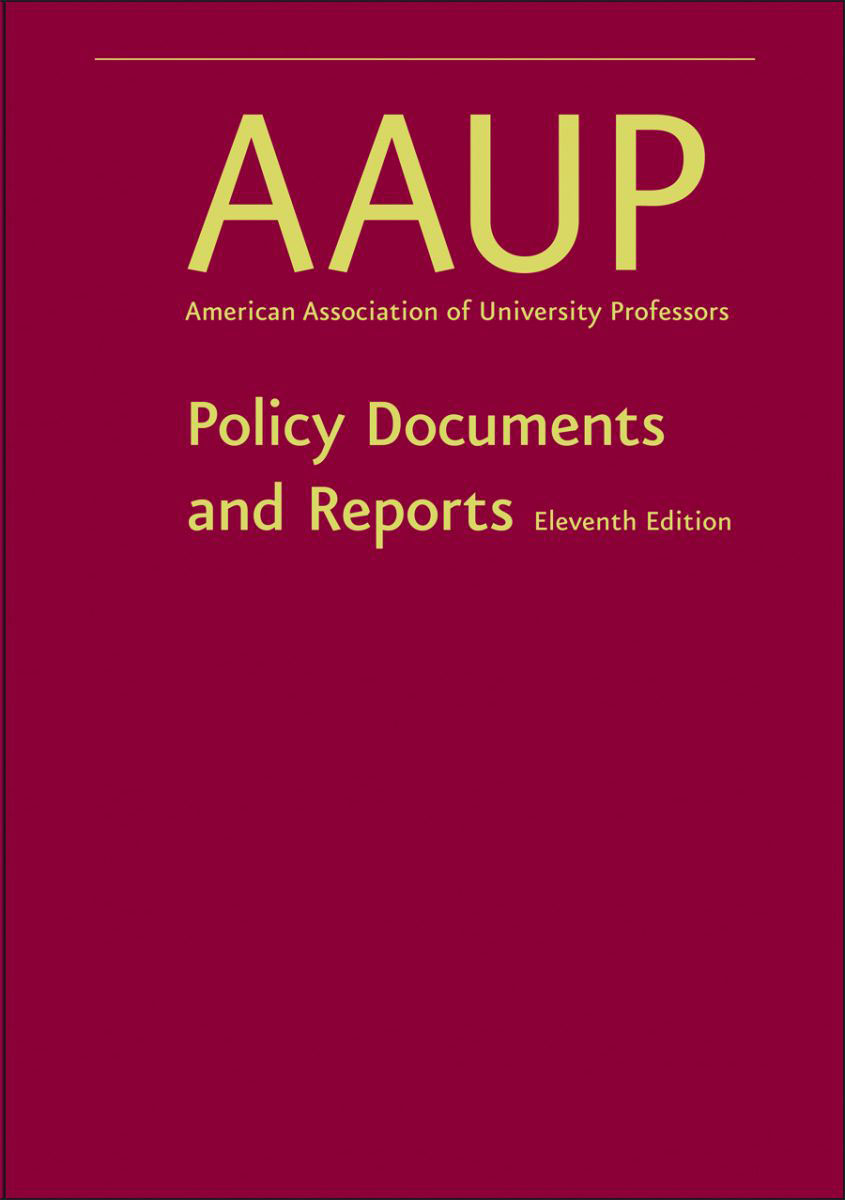 The Redbook The Redbook
The AAUP's Policy Documents and Reports (widely known as the "Redbook" because of the color of its cover) includes core AAUP policy statements on academic freedom, tenure, and due process; academic governance; professional ethics; research and teaching; online and distance education; intellectual property; discrimination; collective bargaining; accreditation; and students' rights and freedoms.
Learn more or purchase the book here. AFT members are entitled to a 30 percent discount.
|
 AAUP Research AAUP Research
Results from the AAUP's annual Faculty Compensation Survey (FCS) are published in the Annual Report on the Economic Status of the Profession, including institution-level appendixes that may be used for compensation studies.
The AAUP's interactive data website incudes historical FCS data going back to 2014–15 and provides drilldown capabilities for producing peer compensation reports.
AFT local or state federation presidents who wish to conduct their own analyses may request FCS data access free of charge for their business purposes.
The AAUP research department also conducts research on academic freedom, tenure, and governance, the academic workforce, and more. Links to recent reports and ways to contact the department can be found here.
|
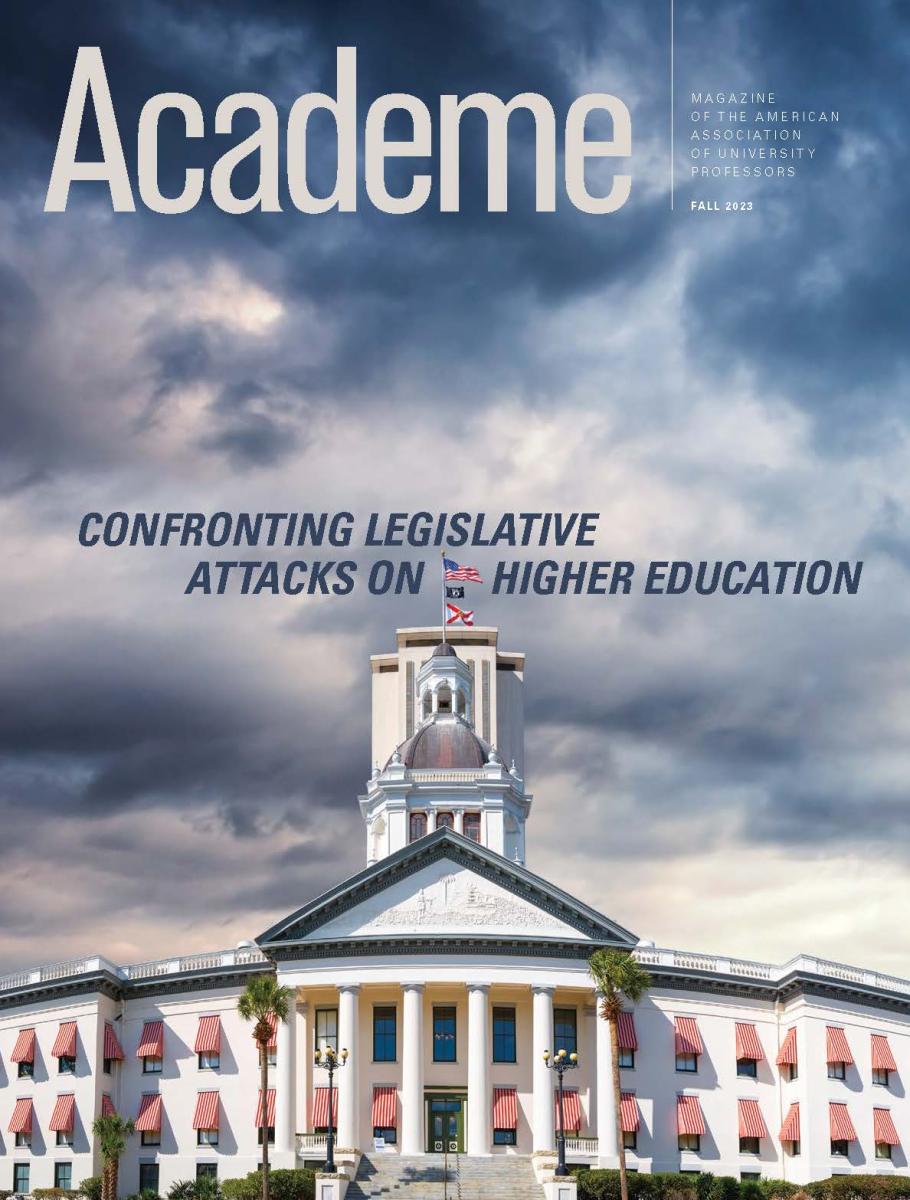 Academe and Academe Blog Academe and Academe Blog
The AAUP publishes the quarterly Academe magazine, with fall, winter, and spring issues featuring articles about academic freedom, labor, and higher education, and the annual Bulletin of the year's key reports published each summer.
Our Academe Blog publishes short pieces on current issues in higher education throughout the year.
AFT members can sign up here to get Academe delivered straight to your inboxes.
|
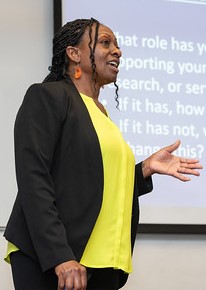 Summer Institute Summer Institute
Our Summer Institute is the premier training program for faculty advocates. Every year, faculty members from around the country attend this four-day series of intensive workshops to learn about AAUP policies, discuss the issues facing the academy, sharpen their skills as union leaders, and develop strategies for organizing.
Not only do attendees benefit from these educational, skills-building sessions, but they also enjoy the opportunity to network and brainstorm with fellow higher-education advocates.
|
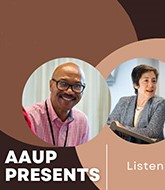 AAUP Presents AAUP Presents
Check out our podcast, AAUP Presents, where we discuss issues related to academic freedom, shared governance, higher ed, and more.
New episodes are posted on our site and all major podcasting platforms regularly. Subscribe on your preferred platform so you don't miss any episodes.
|
 Journal of Academic Freedom Journal of Academic Freedom
The AAUP’s Journal of Academic Freedom publishes scholarship on academic freedom and on its relation to shared governance, tenure, and collective bargaining. Essays range from historical studies to analyses of contemporary conflicts, from accounts of individual faculty experiences to institutional histories.
The Journal is published online annually, and we release a call for papers each fall.
|









